Abstract
Despite technological advances that support wide-ranging access to and transfer of knowledge, practicing physicians continue to underutilize current biomedical literature. This paper explores the nature of clinically applicable medical knowledge through a structural analysis of clinical questions. The author analyzed a set of sixty questions, based on actual online search requests of practicing physicians, for stated and unstated needs, certainty levels, implicit and explicit assumptions, decision-making processes, and type of answer required. As a result, four states of information valuable in patient care were identified: prediagnostic assessment, diagnosis, treatment choice, and learning. These states are presented in frame-like structures that integrate declarative and procedural components of medical decision making. It is concluded that clinical problem solving requires a blend of declarative and procedural knowledge. The ratio depends, in part, upon the reasoning process underway at the time of the request. Procedural knowledge required for clinical problem solving may be absent from current biomedical journal literature or difficult to identify.
Full text
PDF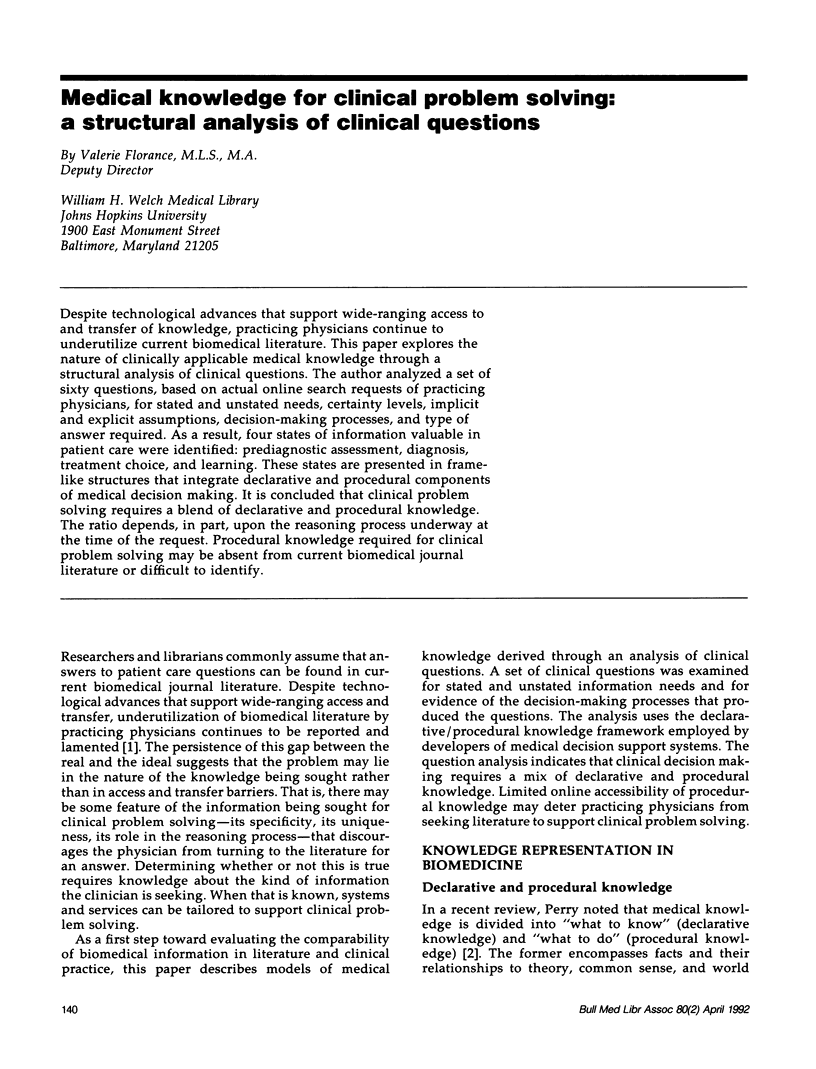
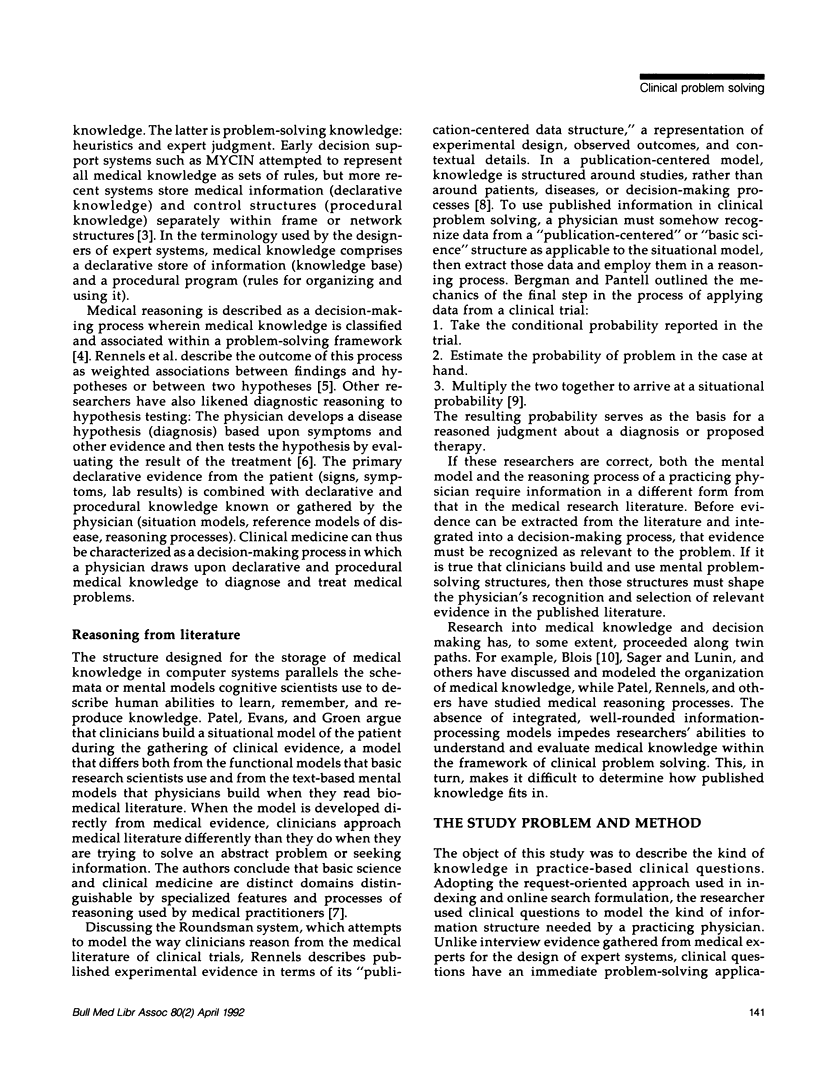
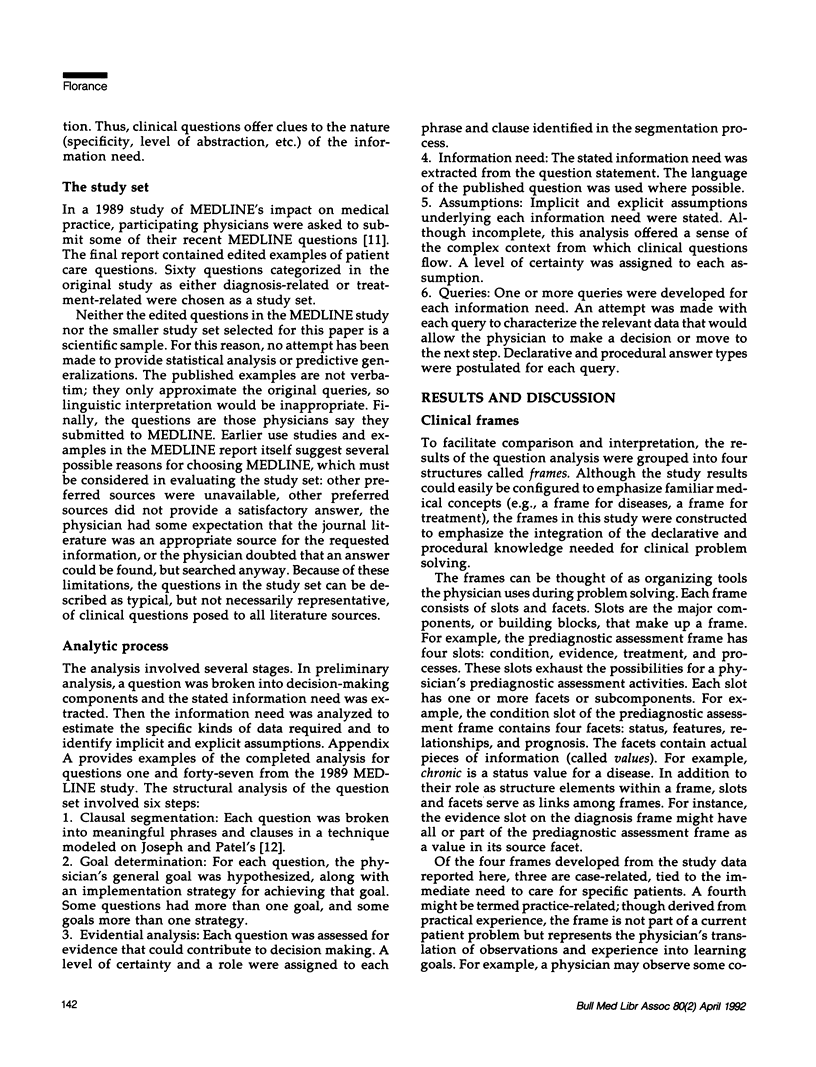
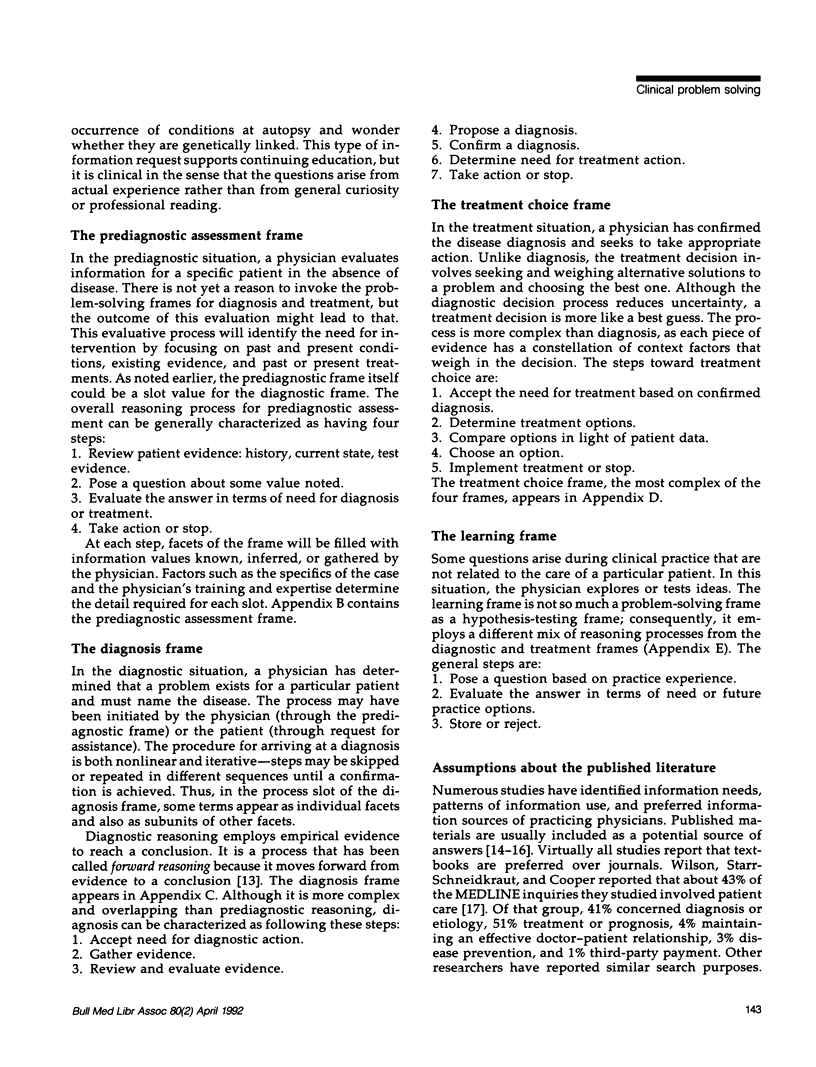
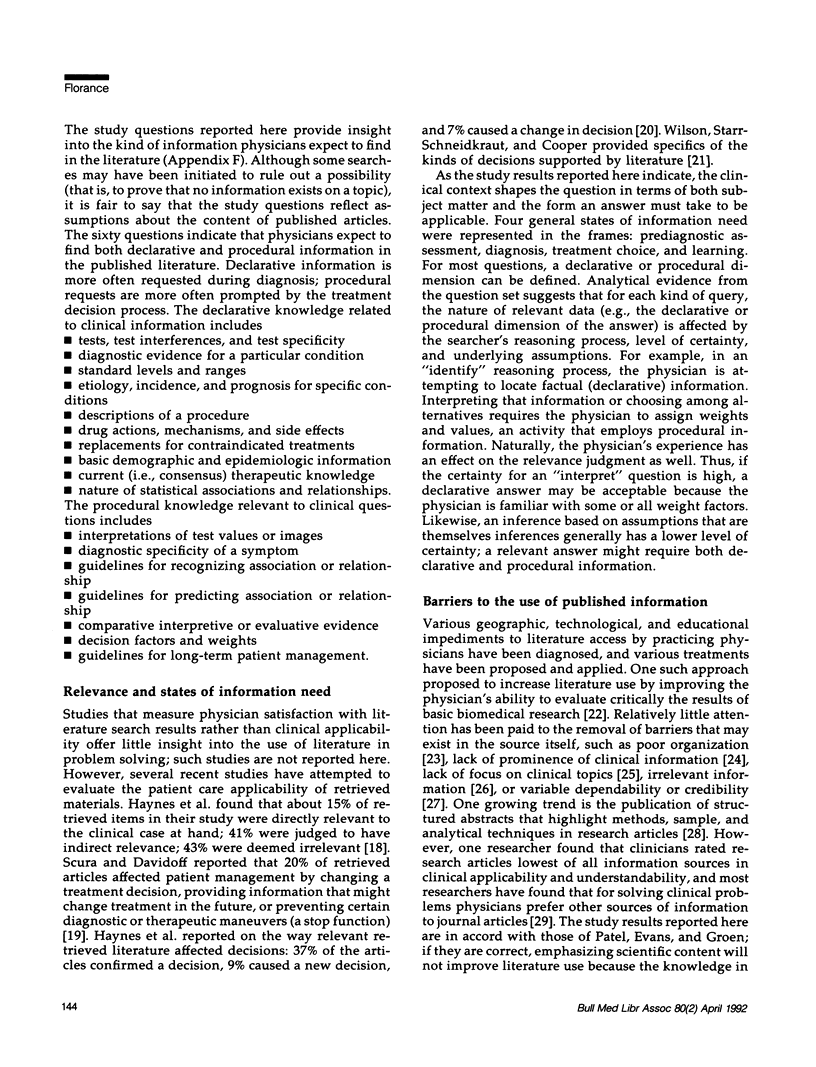
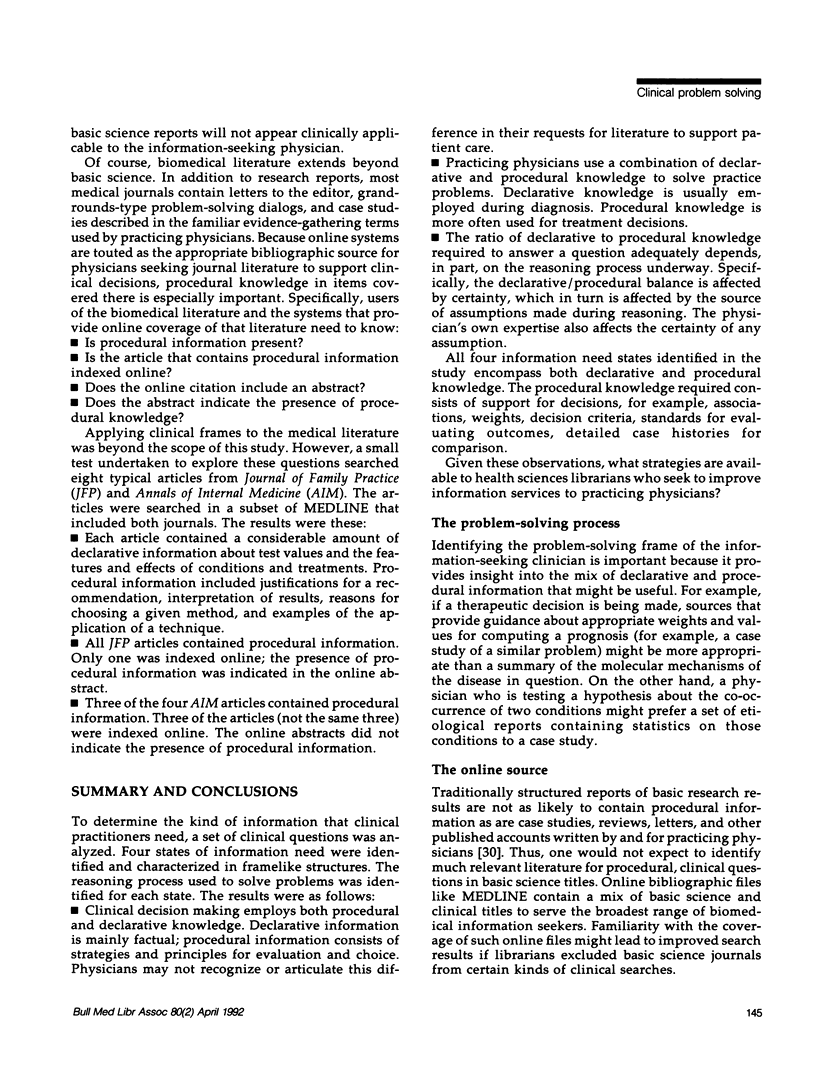
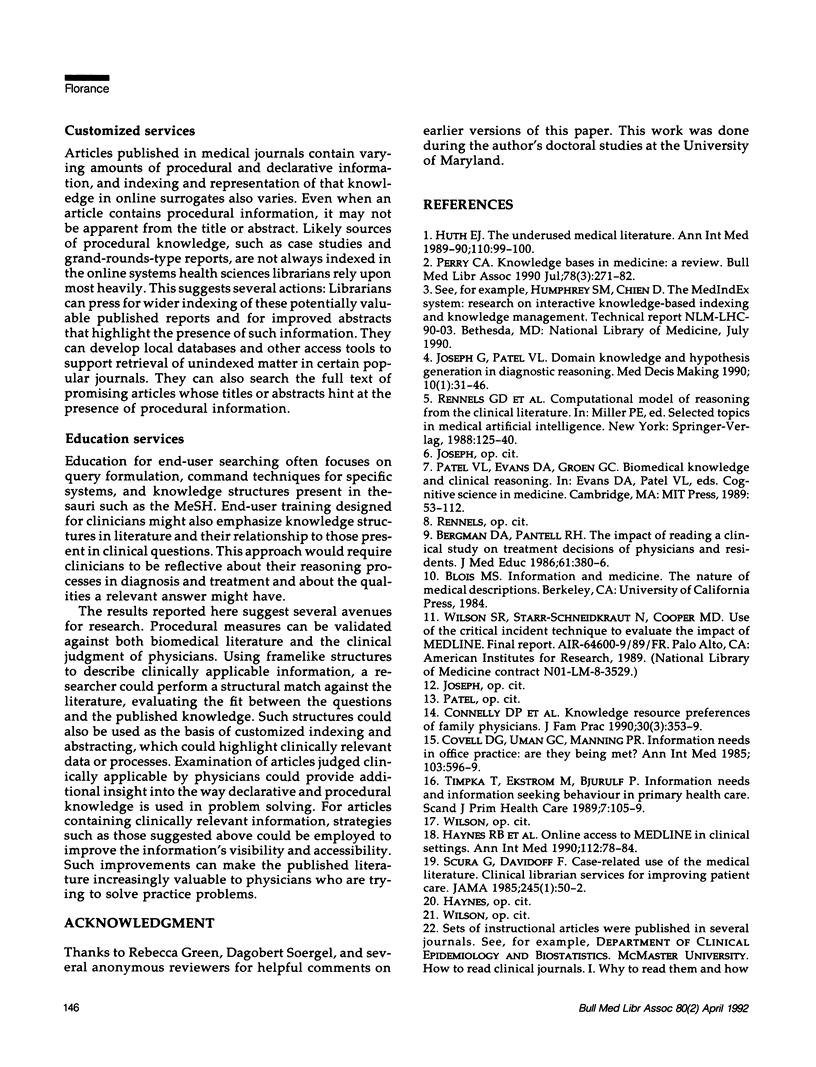
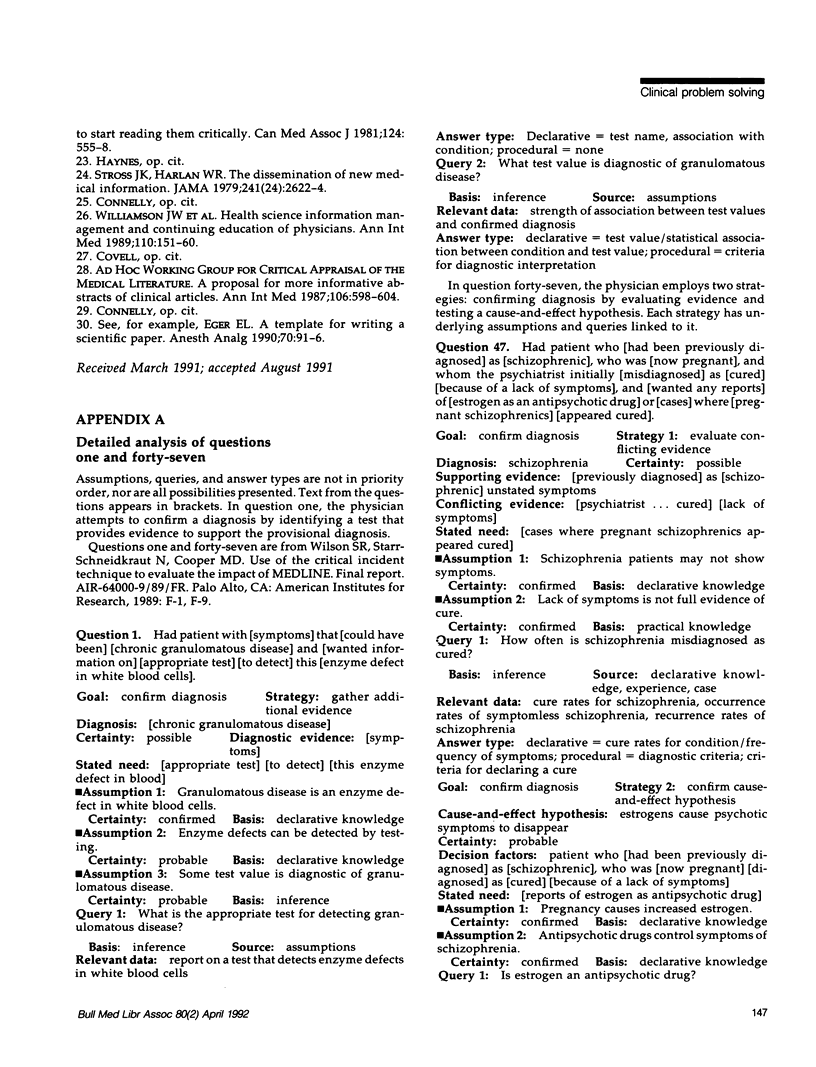
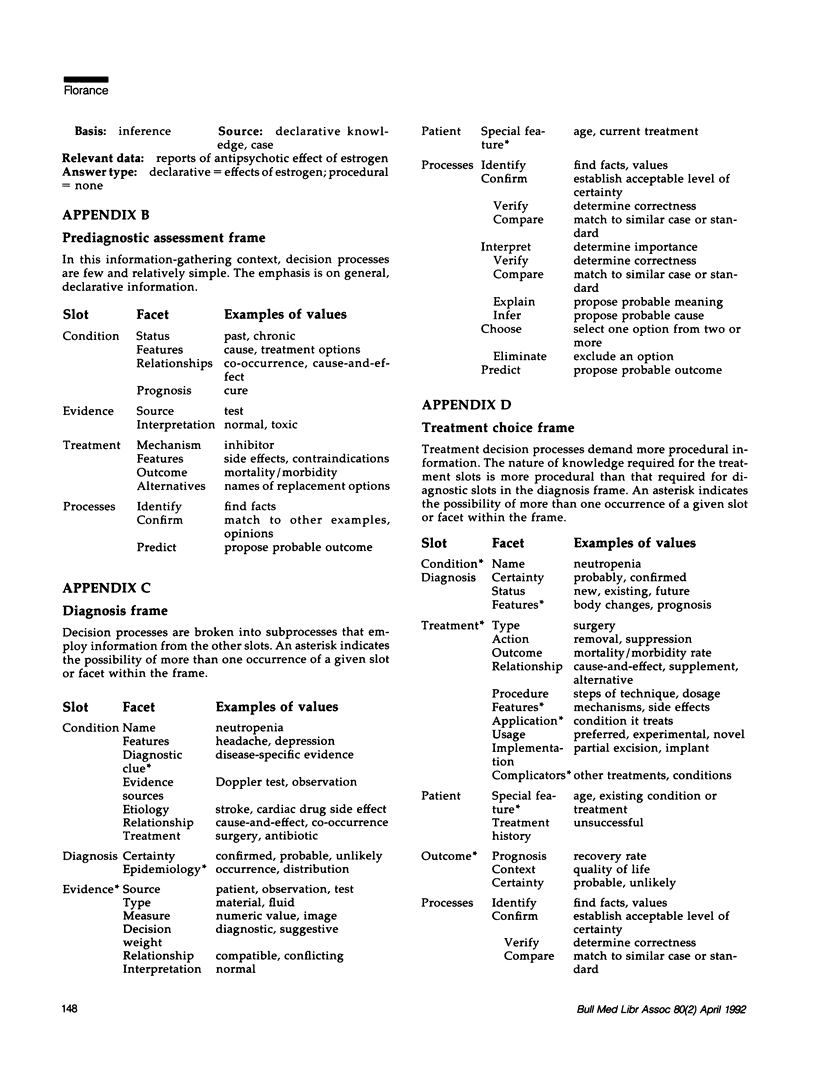
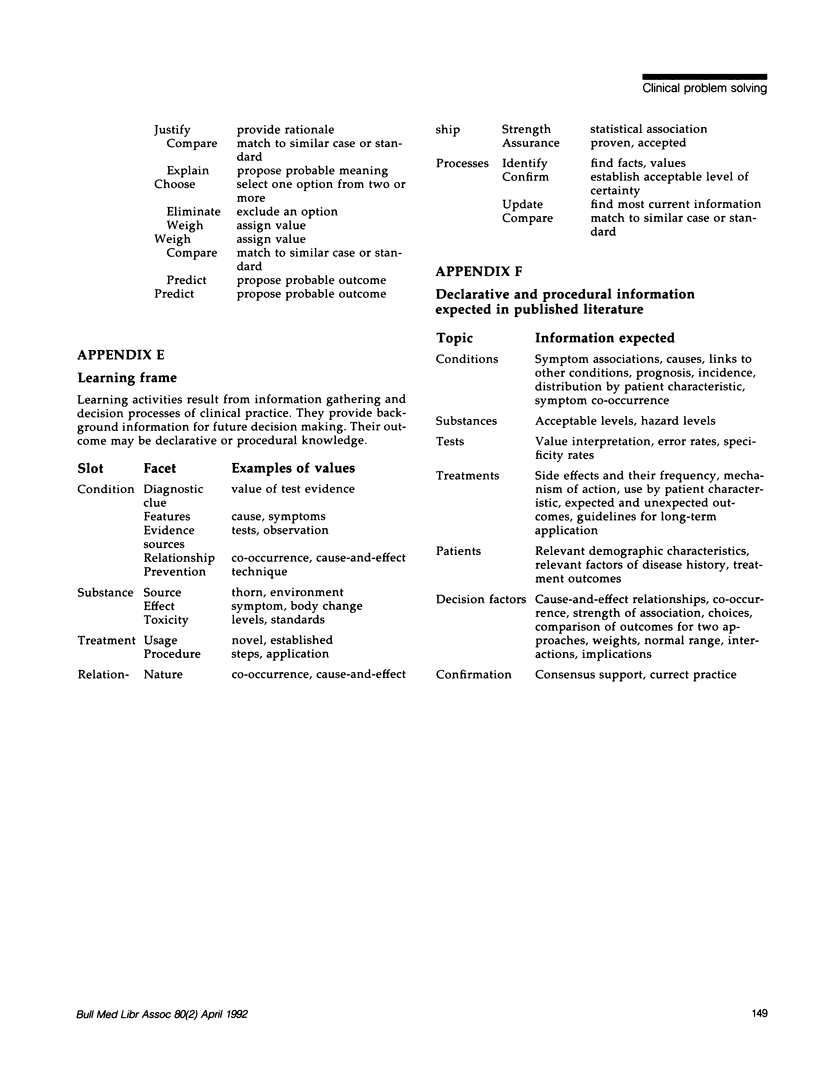
Selected References
These references are in PubMed. This may not be the complete list of references from this article.
- A proposal for more informative abstracts of clinical articles. Ad Hoc Working Group for Critical Appraisal of the Medical Literature. Ann Intern Med. 1987 Apr;106(4):598–604. [PubMed] [Google Scholar]
- Bergman D. A., Pantell R. H. The impact of reading a clinical study on treatment decisions of physicians and residents. J Med Educ. 1986 May;61(5):380–386. doi: 10.1097/00001888-198605000-00005. [DOI] [PubMed] [Google Scholar]
- Connelly D. P., Rich E. C., Curley S. P., Kelly J. T. Knowledge resource preferences of family physicians. J Fam Pract. 1990 Mar;30(3):353–359. [PubMed] [Google Scholar]
- Covell D. G., Uman G. C., Manning P. R. Information needs in office practice: are they being met? Ann Intern Med. 1985 Oct;103(4):596–599. doi: 10.7326/0003-4819-103-4-596. [DOI] [PubMed] [Google Scholar]
- Haynes R. B., McKibbon K. A., Walker C. J., Ryan N., Fitzgerald D., Ramsden M. F. Online access to MEDLINE in clinical settings. A study of use and usefulness. Ann Intern Med. 1990 Jan 1;112(1):78–84. doi: 10.7326/0003-4819-112-1-78. [DOI] [PubMed] [Google Scholar]
- Huth E. J. The underused medical literature. Ann Intern Med. 1989 Jan 15;110(2):99–100. doi: 10.7326/0003-4819-110-2-99. [DOI] [PubMed] [Google Scholar]
- Joseph G. M., Patel V. L. Domain knowledge and hypothesis generation in diagnostic reasoning. Med Decis Making. 1990 Jan-Mar;10(1):31–46. doi: 10.1177/0272989X9001000107. [DOI] [PubMed] [Google Scholar]
- Perry C. A. Knowledge bases in medicine: a review. Bull Med Libr Assoc. 1990 Jul;78(3):271–282. [PMC free article] [PubMed] [Google Scholar]
- Scura G., Davidoff F. Case-related use of the medical literature. Clinical librarian services for improving patient care. JAMA. 1981 Jan 2;245(1):50–52. [PubMed] [Google Scholar]
- Stross J. K., Harlan W. R. The dissemination of new medical information. JAMA. 1979 Jun 15;241(24):2622–2624. [PubMed] [Google Scholar]
- Timpka T., Ekström M., Bjurulf P. Information needs and information seeking behaviour in primary health care. Scand J Prim Health Care. 1989 Jun;7(2):105–109. doi: 10.3109/02813438909088656. [DOI] [PubMed] [Google Scholar]
- Williamson J. W., German P. S., Weiss R., Skinner E. A., Bowes F., 3rd Health science information management and continuing education of physicians. A survey of U.S. primary care practitioners and their opinion leaders. Ann Intern Med. 1989 Jan 15;110(2):151–160. doi: 10.7326/0003-4819-110-2-151. [DOI] [PubMed] [Google Scholar]



